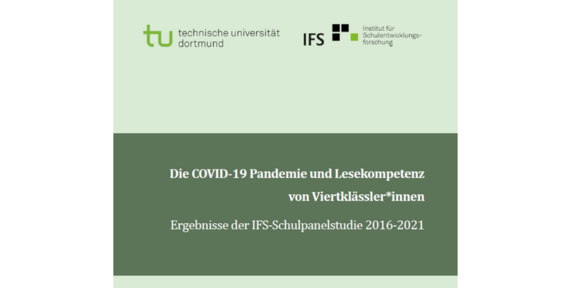Lower reading literacy in 4th graders after COVID-19-related restrictions
- Press release
- Projects
- News

Since March 2020, the COVID-19 pandemic had a significant, worldwide impact on everyday life and on the education system. Has the frequent alternation between distance and face-to-face learning with different hybrid variants had an impact on students' reading literacy? A research team at the Center for Research on Education and School Development has addressed this question for Germany with regard to the competence of reading, which is fundamental to educational processes. The team used representative data from a German school panel study with more than 4,000 students in 2016 and 2021 at 111 selected elementary schools. It examined how reading literacy of students in fourth grade in Germany in 2021 differs from the reading literacy of their peers before the pandemic in 2016. The German data show that children's reading scores in 2021 averaged 980 points, significantly lower than the 2016 average of 1.000 points. At the time of the study's surveys in 2021, students had more than a year of pandemic-related restrictions behind them. Thus, children are missing about half a learning year on average. The results also show that the proportion of elementary school students who can read well to very well fell by around seven percent compared to 2016, to 37 percent. In contrast, the proportion of those who have problems with reading and text comprehension increased by six percent to a total of 28 percent. For further information, please visit the website of the IFS panel study (available only in German) or download the press release.




